Indian startup Urban Sphere’s vision and strategies in e-bus manufacturing. Our interview
Indian bus maker startup Urban Sphere, based in Bangalore, is targeting the e-bus market with an offer made of BEV vehicles from 6 to 9 meter long. The company says having "prototypes ready for approval" and most of the production is carried on in India. South-east Asia and Africa are among the main target markets.
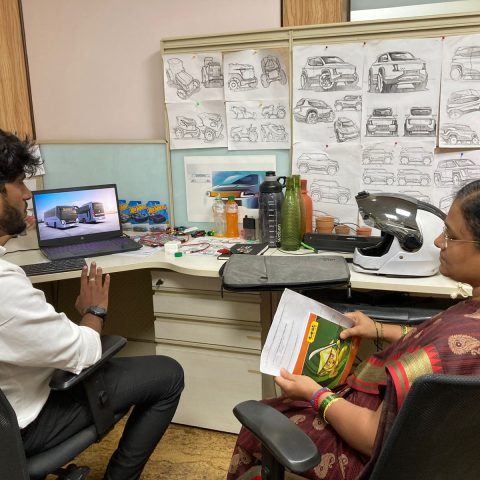
By Usha Praveen
Indian bus maker startup Urban Sphere, based in Bengaluru, founded in October 2022, is targeting the e-bus market with an offer made of BEV vehicles from 6 to 12 meter long. The company says having “prototypes ready for approval” and most of the production is carried on in India. South-east Asia and Africa are among the main target markets.
In this interview, Karthik Athreya, CEO of Urban Sphere, along with Hima Motati, Co-founder and Director of Finance, and Pranav Pise, Co-founder and Chief Styling Officer, discuss the company’s vision and product range. They elaborate on Urban Sphere’s manufacturing plans, market strategies, and financial management.
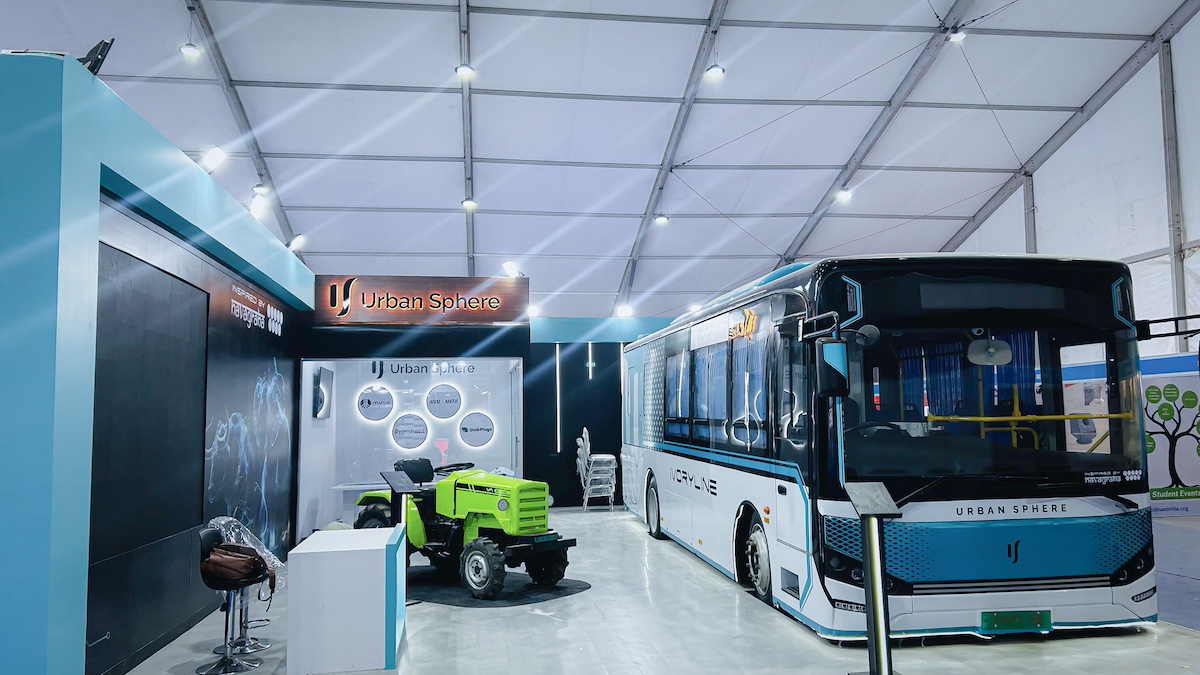
Urban Sphere: a new Indian bus maker
To begin with, Can you provide us a background of your company’s and vision?
Karthik Athreya: Our company, specializes in manufacturing electric commercial vehicles and establishing OEM connections. We are committed to developing connected commercial 4-wheeled electric vehicles and providing EV fleet management services. Our vision is to establish a robust manufacturing facility and ecosystem in India, with a strong emphasis on leveraging opportunities in the export market.

Can you describe your product range and specifications?
Karthik Athreya: Our offerings encompass 6 m, 7.5 m and 9 m variant e-buses and a forthcoming 14.5-meter tarmac bus. Featuring an electric skateboard chassis named MULA (Modular Unified Ladder Architecture), this series promises versatility and efficiency.
Among our innovations is the Ivory line e-bus, crafted by Urban Sphere, a 9-meter electric bus boasting a 180-kW motor and a 193.1 kWh LFP battery pack. This configuration enables 300-kilometer range on a single charge, setting a new industry standard for electric buses. Ivory line series boasts rapid charging capability; with a 250-kW fast charger, the bus can replenish up to 80% of its battery in just 45 minutes, minimizing downtime for operators.
We utilize LTO chemistry battery packs for our 6 m buses and airport tarmac buses. These packs offer both AC and DC charging options, a rarity in the Indian market where DC charging predominates. This dual capability not only reduces infrastructure costs but also fosters ecosystem growth.
What market are you primarily targeting?
Karthik Athreya: Our primary focus is on buses for last-mile commutes, schools, and colleges, especially in Southeast Asian countries where narrow roads necessitate smaller buses. Additionally, we target niche markets like airport tarmac buses, corporate transport.
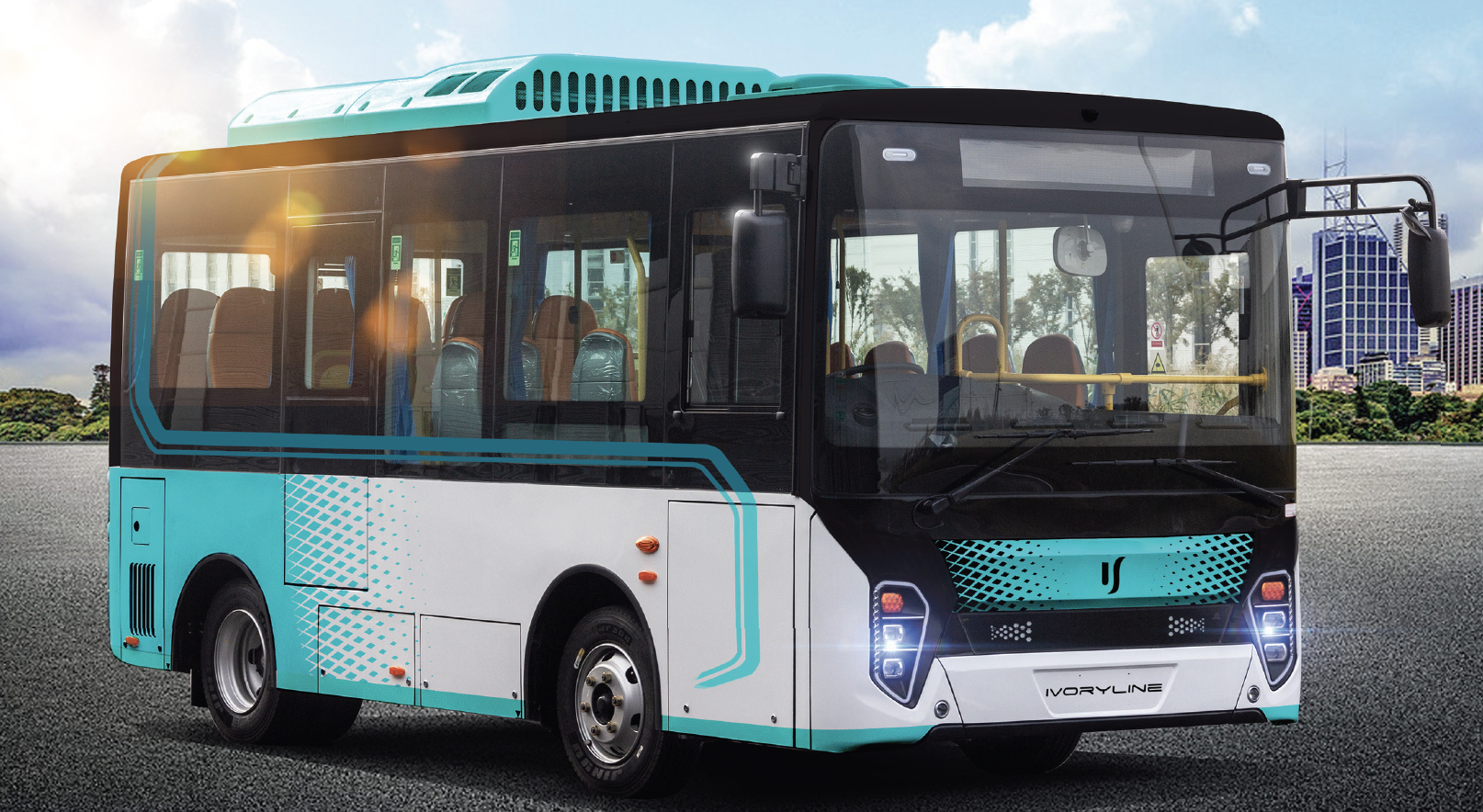
Urban Sphere, where are financing coming from?
How about Urban Sphere’s investments?
Hima Motati: Urban Sphere’s journey began with bootstrap funding by Karthik, demonstrating his commitment to startups. Over three years of relentless effort, including numerous iterations and extensive research and development, paved the way for our company. Currently, our funding primarily stems from promoter contributions, with minimal external investments. However, we are actively engaged in discussions with various investors to secure up to $10 million over the next two years. The initial tranche may amount to $2.5 million, with additional funding expected after six months once our operations are stabilized.
How does Urban Sphere plan to manage its financial needs?
Hima Motati: Urban Sphere’s solid foundation, built on order-based revenue streams and completed R&D efforts, positions us favourably to meet our financial requirements. We have prototypes ready for approval and are prepared to leverage bank loans to address our working capital needs. Additionally, our export orders provide payment guarantees, enabling us to secure increased funding from banks such as Exim, SBI, and others.
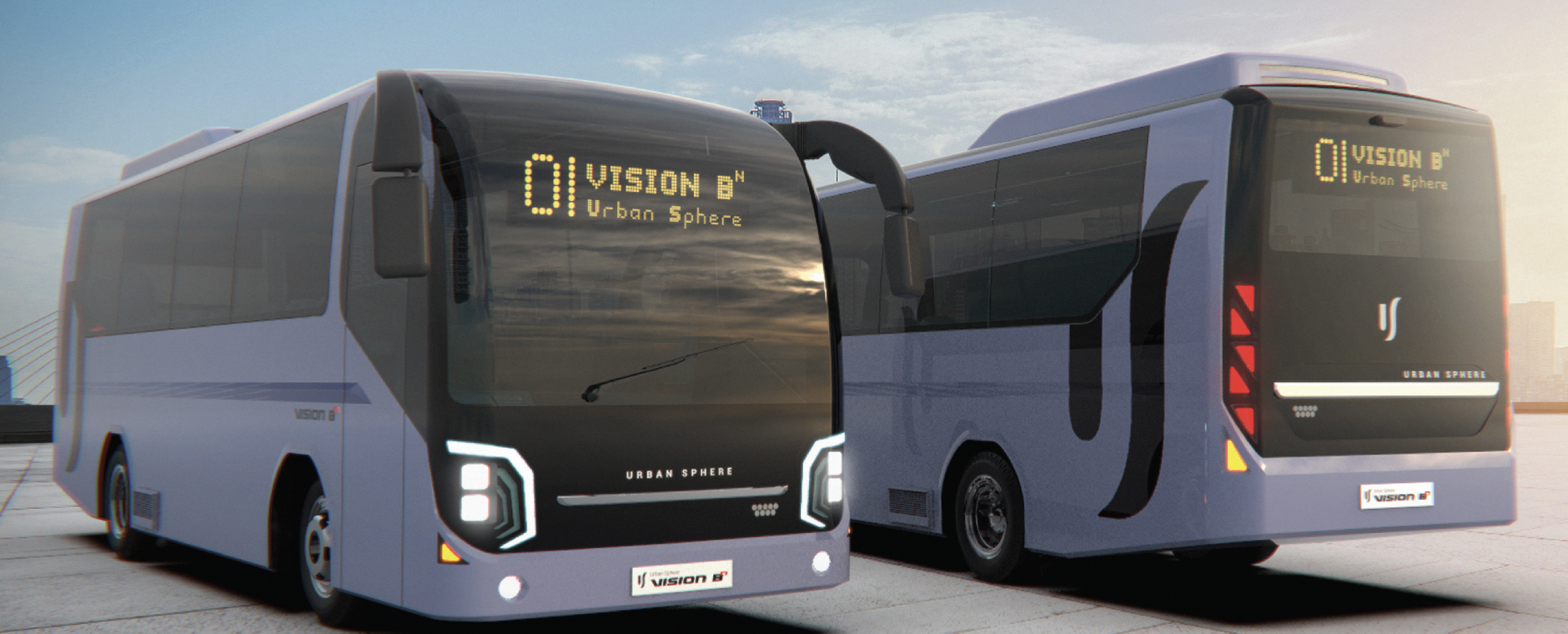
What is your manufacturing plan?
Karthik Athreya: Our manufacturing plant is based in Tumkur Vasantha Narasapur Industrial Park. We have a two-acre facility that manages the entire production process, from assembly and body building to painting and furnishing. This integrated approach ensures quality and efficiency in our production. Moreover, 70% of the Ivory line e-bus is developed and manufactured in India, in collaboration with MSMEs (Micro, Small & Medium Enterprises).
What about your global market strategies?
Karthik Athreya: We focus on countries well-funded by the World Bank, Asian Development Bank, or similar institutions. This strategy provides financial security and credibility, crucial for a startup like ours. We target developing nations such as Kenya, Sri Lanka, Bangladesh, and the Philippines, where there is significant investment in converting diesel buses to electric.
We have signed MoUs with Kenya and the Philippines and have been working on the Philippines market for over a year, starting in June 2023. We have launched our bus on June 5th, 2024, which marks a significant step in manufacturing vehicles in India, utilizing local resources and creating a robust ecosystem.
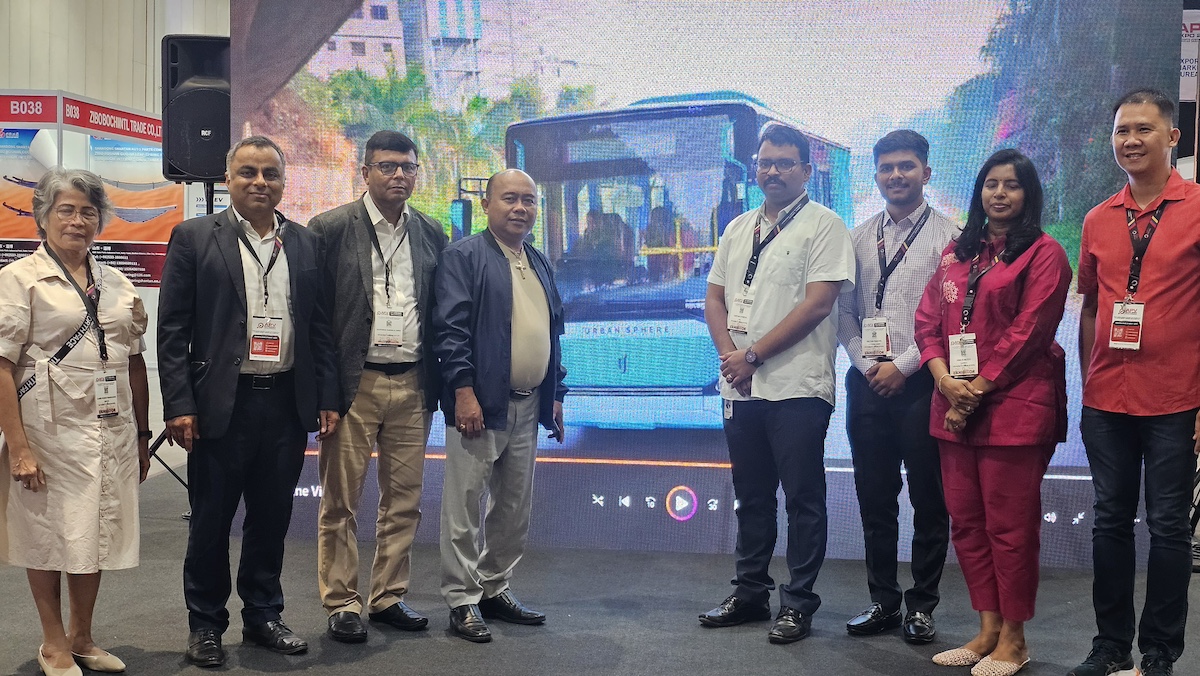
What inspired the launch of your bus in the Philippines?
Karthik Athreya: The launch inspired by the opportunity presented during the Hyderabad Formula E week in February, where international diplomats well received our 5.5-meter chassis. The anti-China sentiment in the Philippines further encouraged us to proceed with the bus development and focusing on components from the US and Germany.
What are the challenges you face as a startup in the Indian market?
Karthik Athreya: As a startup, we face challenges in participating in direct tenders due to eligibility criteria. For example, to operate under the GCC model in India, a company needs to have manufactured and supplied at least 25 electric buses. Since we are still scaling up, we aim to meet this target by exporting rather than deploying buses domestically. This strategy positions India credibly on the international map and aligns with our vision.
Fuel cell are among future ways for Urban Sphere…
What are your aspirations for the future?
Karthik Athreya: We aim to be pioneers in electric vehicles, not only in battery-powered technology but also in hydrogen fuel cells. Our future plans include hydrogen fuel cell-based tractor trailers, tippers, pickup trucks, and other commercial vehicles, all designed and manufactured in India.
How does Urban Sphere’s brand philosophy differ from others, and what inspired the creation of its logo?
Pranav Pise: Urban Sphere’s brand philosophy stands out through its fusion of planet-centred design and human-centred needs, creating a unique approach to addressing both environmental and societal concerns. Urban Sphere’s logo draws inspiration from Hindu culture, incorporating symbols like Vishmanth, Tilak, and Trishul, alongside the initials of the brand (US), symbolizing a revolutionary identity deeply rooted in tradition.
How does Urban Sphere incorporate Indian culture into its brand philosophy and the Vision Bolt lineup?
Pranav Pise: The Vision Bolt lineup comprises futuristic, electric commercial vehicles designed to meet various transportation needs, including buses (B), oversize trucks (O), and lifestyle trucks (LT), reflecting Urban Sphere’s commitment to innovation and sustainability.
Urban Sphere derives inspiration from Indian cultural concepts like Vedic Astrology and Navagraha, incorporating the idea of planetary influences into its brand philosophy, evident in product design and symbolism.
How does Navagraha influence Urban Sphere’s product lineup and vehicle design?
Pranav Pise: Navagraha, with its association of nine planets impacting human life, inspires Urban Sphere’s product lineup. Each vehicle segment reflects the characteristics of specific Navagraha entities, such as elephants for high-load vehicles and bulls for utility vehicles, embodying strength, calmness, and utility.
Urban Sphere’s design process begins with sketches that evolve through meticulous iterations, ensuring every detail reflects the essence of Navagraha-inspired characteristics. Elements like hood bumps, silhouettes, and chrome accents resembling tusks capture the spirit of each entity.








